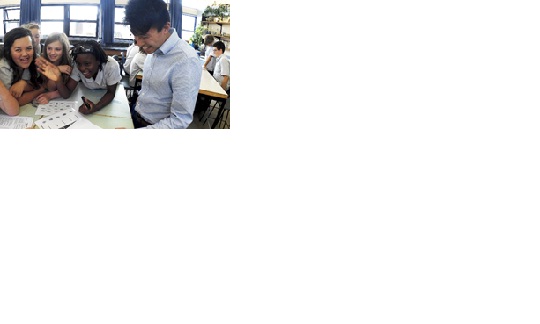Teaching graduate uses science to enhance student learning

It’s not every day you come across a human genetics and marine biology scientist who teaches secondary school students. Victoria University of Wellington graduate Jack Du has gained two bachelor’s degrees and a graduate diploma over his time at Victoria, and is using his knowledge to inspire the younger generation to think more critically about the world around them.
Jack started out wanting to research cancer, so chose to study a Bachelor of Biomedical Science at Victoria University. After graduating in 2010, Jack worked at the Malaghan Institute of Medical Research located at Victoria University’s Kelburn Campus, researching cures for brain tumours. As his career progressed, he realised his interest lay in studying whole organisms rather than cells.
“I decided to put my knowledge in genetics into the area of marine biology.”
Jack graduated with a Bachelor of Science with Honours in Marine Biology in 2012, completing his honours research on better quota management for the then Ministry of Fisheries. He then spent time in his home country of China working for a pharmaceutical company.
“Before long I realised that I love the outdoors and social interactions too much to spend my life working in a lab—but I wanted to preserve my passion for science. Becoming a teacher was the obvious choice.”
Jack completed his Graduate Diploma in Teaching at Victoria in 2015 and now at Paraparaumu College.
He says his motivation to teach is about increasing New Zealand’s passion for science.
“I want to equip students with the scientific knowledge and thinking skills to understand our ever-changing world and to make informed decisions on important issues.
“If we can amplify students’ curiosity and develop their learning skills through connections to science, culture and humanitarian values, I believe secondary education can prepare our children for an unpredictable future.”
Jack comes up with interesting ways to get students into science. One example was taking his Year Twelve biology students to the college library, where librarians helped take them through different research methods and databases.
“We urged the students to use their own judgement to critically assess the validity of claims they encountered, to ask, for example: ‘Is the sample size significant enough? Is there a control group? What do the statistical figures mean? What is the context?’.
“We also encouraged them to look for more sources of information on the same topic, and to evaluate the reference before quoting or paraphrasing anything.”
Jack says each year he is further encouraged to inspire students to think seriously about science.
“As technology and the way people access information continues to expand, it is essential that our young minds have the ability to assess what they read and to use it to their advantage.”
